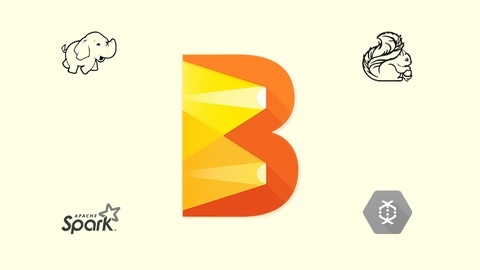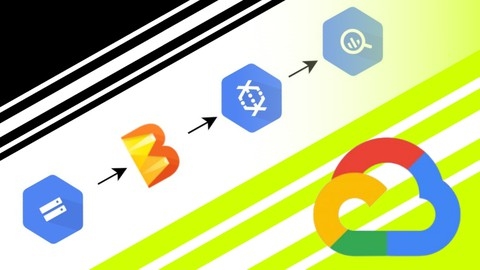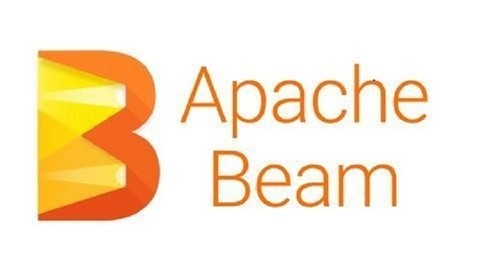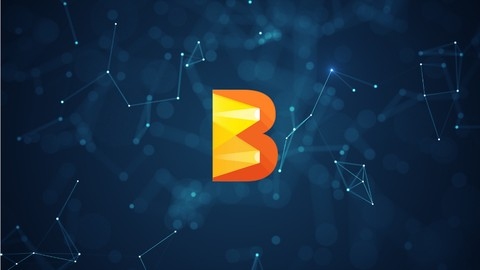Apache Beam is a powerful open-source framework for building data pipelines that can process both batch and streaming data.
It offers a unified programming model, allowing you to write code once and execute it on various execution engines like Google Cloud Dataflow, Apache Flink, or Apache Spark.
Learning Apache Beam can equip you with the skills to process massive datasets, extract meaningful insights, and build robust, scalable data processing solutions.
Finding the right Apache Beam course on Udemy can be a daunting task, as you are faced with a plethora of options.
You are looking for a course that balances theoretical understanding with practical application, and provides you with the tools and knowledge to confidently build real-world data pipelines.
We’ve carefully curated our recommendations and after extensive research, we confidently recommend Apache Beam | A Hands-On course to build Big data Pipelines as the best overall Apache Beam course on Udemy.
This comprehensive course emphasizes hands-on experience, guiding you through the creation of real-world pipelines, tackling challenges like loan default prediction and mastering windowing strategies for streaming data analysis.
While this course stands out as our top pick, other options cater to different learning styles and specific goals.
Keep reading for our complete list of recommended Apache Beam courses on Udemy, tailored to your unique needs and learning preferences.
Apache Beam | A Hands-On course to build Big data Pipelines
You’ll dive deep into Apache Beam’s architecture and fundamental concepts, learning to leverage its unique transformations to manipulate and analyze data.
The course doesn’t shy away from practical applications.
You’ll walk through real-world scenarios, such as identifying loan defaulters, utilizing the Map, FlatMap, and Filter transforms to achieve desired outcomes.
Building composite transforms, a valuable tool for creating reusable data processing components, is also covered in detail.
The course seamlessly transitions into the realm of streaming data pipelines, introducing you to Google Cloud Platform’s PubSub service and its integration with Apache Beam.
You’ll master the art of implementing various windowing strategies, including tumbling, sliding, and session windows, essential for analyzing streaming data effectively.
Handling late elements with triggers and understanding the role of watermarks in maintaining data consistency are further explored.
Finally, you’ll learn to deploy your Apache Beam pipelines on Google Cloud Dataflow, a managed service for large-scale data processing.
You’ll gain practical experience writing to BigQuery tables, a robust data warehousing solution on Google Cloud Platform.
You’ll be well-prepared to tackle real-world data challenges and leverage the power of Apache Beam to unlock valuable insights from your data.
Apache Beam | Google Data Flow (Python) | Hands on course
This comprehensive course provides a thorough introduction to the world of Apache Beam, guiding you from foundational concepts to advanced real-time data processing techniques.
You’ll start by understanding the core architecture of Apache Beam and its data flow model.
The course dives deep into essential components like PCollections and equips you with the practical skills to set up your environment and execute your first Beam programs.
The emphasis then shifts to the versatile transformations available within Apache Beam, covering key operations like Map, FlatMap, CoGroupByKey, and Partition.
You’ll learn how to ingest data from various sources, output to diverse destinations, and master the powerful ParDo transformation, including its side input and output capabilities.
Next, the course delves into the real-time world of streaming with Apache Beam.
You’ll explore Google PubSub, a crucial service for message exchange, and learn how to integrate it seamlessly within your Beam pipelines.
A dedicated section on windows will equip you with the skills to effectively process streaming data, covering different window types like tumbling, sliding, and session windows.
The course also emphasizes the importance of handling late elements in real-time data processing scenarios.
Finally, you’ll discover the benefits of Google Cloud Dataflow, a managed service designed to run Apache Beam pipelines on Google Cloud.
You’ll learn how to work with Dataflow templates and notebooks, and leverage Beam SQL for powerful query capabilities within the Google Cloud ecosystem.
This course offers a well-structured approach to learning Apache Beam, equipping you with the knowledge and practical skills to build robust data processing pipelines.
Data Engineering with Google Dataflow and Apache Beam on GCP
You’ll start by understanding the fundamental concepts of Apache Beam, including its architecture and how pipelines function.
The course then transitions to practical exercises, leveraging the power of Google Colab to explore key manipulation functions like beam.Map, beam.Filter, and beam.Flatten.
You’ll learn to write custom functions with ParDo, adding a layer of flexibility to your data processing.
The course seamlessly integrates Apache Beam with GCP, guiding you through the process of setting up a GCP account, creating service accounts and storage buckets, and establishing a local Apache Beam environment.
You’ll learn to execute pipelines using the Direct Runner and save results in Google Cloud Storage.
The curriculum also emphasizes the creation of Dataflow templates for running batch jobs, enabling you to write data directly into BigQuery.
This knowledge will empower you to tackle complex data processing tasks with confidence and efficiency.
Learn Practical Apache Beam in Java | BigData framework
You’ll gain a solid understanding of both batch and real-time processing, mastering the fundamentals of setting up your Apache Beam environment and working with PCollections, the core building blocks of your data pipelines.
The course delves into various types of transformations, including element-wise operations like MapElements, ParDo, and Filters, and aggregation functions such as Distinct, Count, GroupByKey, and Joins.
You’ll get hands-on experience working with diverse input/output sources and integrations, learning to read and write data to AWS S3 and Parquet files.
You’ll also explore integrations with popular databases like MySQL and MongoDB, as well as file systems like HDFS.
A strong emphasis is placed on building robust streaming ETL pipelines using Kafka, a widely used message broker.
You’ll gain fluency in Beam SQL, a powerful tool for querying and manipulating data.
The course culminates with a focus on integrating Apache Beam with Google Cloud Platform (GCP).
You’ll set up a GCP account and learn to work with Google Storage, validate your data, and even ingest it into Google BigQuery.
This comprehensive approach equips you with the essential skills and knowledge to design and deploy powerful data processing pipelines using Apache Beam.
The Complete Course of Apache Beam 2024
You’ll start by understanding the fundamental concepts of pipelines, PCollections, and PTransforms, which form the foundation of your Beam data processing operations.
The course also dives into crucial aspects of data management, including windowing, triggers, and event time processing, helping you effectively handle data arriving at different times.
You’ll then move into practical application, learning how to create pipelines, read and write data from diverse sources, and manipulate data using transformations and ParDo functions.
The course covers essential aspects of fault tolerance, ensuring your pipelines are resilient to errors and data loss, with topics like data durability, recovery, and state management.
The curriculum goes beyond the basics, delving into advanced concepts like side inputs, user-defined functions, and dynamic processing, enabling you to customize and extend your pipelines.
You’ll also learn best practices for testing and debugging your code, ensuring its quality and reliability.
A strong emphasis on performance optimization rounds out the course, covering techniques like data encoding, type safety, serialization, and deserialization.
You’ll also gain insights into concepts like bytestream, deep copy, and versioning, crucial for efficient data handling.
The course concludes by guiding you through setting up Apache Beam projects in distributed systems like Hadoop, preparing you for real-world applications.
This course offers a well-structured and detailed exploration of Apache Beam, equipping you with the knowledge and skills to confidently build robust and efficient data processing pipelines.





